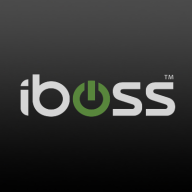


Symantec CloudSOC CASB and Forcepoint ONE compete in the cloud access security broker space. Forcepoint ONE seems to have the upper hand due to its advanced threat capabilities, despite Symantec's strengths in pricing and support.
Features: Symantec CloudSOC CASB offers robust data security, application visibility, and advanced analytics, emphasizing data protection. It includes cloud monitoring and compliance management to ensure data integrity. Forcepoint ONE provides content threat protection, policy enforcement, and adaptive security architecture, focusing on dynamic risk assessment across cloud environments.
Room for Improvement: Symantec CloudSOC CASB can improve its threat response capabilities, real-time threat protection, and expand integration with third-party applications. Forcepoint ONE could enhance its deployment simplicity, expand data protection features, and improve affordability.
Ease of Deployment and Customer Service: Symantec CloudSOC CASB offers straightforward deployment with strong support for hybrid environments and knowledgeable customer service. Forcepoint ONE's deployment is more complex but integrates well into enterprise security frameworks, with customer support focusing on technical solutions.
Pricing and ROI: Symantec CloudSOC CASB presents competitive pricing with a transparent cost structure offering strong ROI, making it appealing to budget-conscious buyers. Forcepoint ONE, though higher in initial cost, provides significant ROI by enhancing security posture and reducing breach incidents, justifying the investment through comprehensive security benefits.
| Product | Market Share (%) |
|---|---|
| iboss | 2.5% |
| Forcepoint ONE | 1.9% |
| Symantec CloudSOC CASB | 0.8% |
| Other | 94.8% |

| Company Size | Count |
|---|---|
| Small Business | 6 |
| Midsize Enterprise | 6 |
| Large Enterprise | 5 |
| Company Size | Count |
|---|---|
| Small Business | 10 |
| Midsize Enterprise | 3 |
| Large Enterprise | 12 |
Iboss offers a comprehensive cloud-based security platform valued for its scalability and autonomous features, ensuring robust security with easy deployment and management capabilities.
Renowned for its robust security architecture, Iboss integrates seamlessly within diverse networks, delivering efficient granular filtering and advanced content categorization. Its single pane of glass console provides ease of management, allowing rapid scalability suitable for rapidly deploying environments. Operates in BYOD setups due to inline filtering without device installation. Integration with cloud-based applications enhances user control, and features like SASE, SSL inspection, and ChatGPT risk protection stand as highlights. Despite its strengths, users have pointed out areas for enhancement like direct navigation in reports, SSL decryption, and better cloud integration while having room to improve data loss prevention.
What are the most important features of Iboss?The usage of Iboss spans educational institutions, specifically K-12, to enforce internet policies, protect data, and support remote work environments. It provides web filtering and security frameworks to ensure safe browsing. Its platform-as-a-service model offers flexibility for both cloud-based and on-premises requirements, integrating seamlessly to deliver enhanced security features suitable for various deployment needs including zero trust, CASB, and network security for work-from-home setups.
Forcepoint ONE is a comprehensive cybersecurity platform that provides organizations with a unified approach to protecting their critical data and assets. It offers a range of solutions that cover everything from network security and cloud security to data protection and insider threat prevention.
With Forcepoint ONE, organizations can gain complete visibility into their security posture, identify potential threats, and take proactive measures to mitigate risks.
One of the key features of Forcepoint ONE is its ability to provide real-time visibility into user behavior across all endpoints, networks, and cloud environments. This allows organizations to quickly identify and respond to potential threats, such as insider threats or malicious activity from external actors. Additionally, Forcepoint ONE offers advanced threat intelligence capabilities that leverage machine learning and AI to detect and respond to emerging threats. Another important aspect of Forcepoint ONE is its data protection capabilities.
The platform offers a range of solutions for protecting sensitive data, including data loss prevention (DLP), encryption, and secure web gateways. These solutions help organizations ensure that their critical data is protected both at rest and in transit, regardless of where it is stored or accessed.
Forcepoint ONE is a powerful cybersecurity platform that offers a comprehensive set of solutions for protecting organizations against a wide range of threats. With its advanced threat intelligence capabilities, real-time visibility into user behavior, and robust data protection features, Forcepoint ONE is an ideal choice for organizations looking to take a proactive approach to cybersecurity.
Symantec CloudSOC CASB is a cloud access security broker that provides visibility and control over cloud applications and services. It offers a comprehensive set of security capabilities, including data loss prevention, threat protection, and compliance management. With CloudSOC CASB, organizations can gain insight into cloud usage patterns, identify potential risks, and enforce policies to protect sensitive data. The solution integrates with leading cloud providers, such as Microsoft Office 365, Salesforce, and Box, to provide seamless protection across multiple cloud environments.
CloudSOC CASB also offers advanced analytics and reporting capabilities, enabling organizations to monitor and track cloud usage and security events in real-time. With its user-friendly interface and flexible deployment options, CloudSOC CASB is an ideal solution for organizations looking to secure their cloud environments and protect their sensitive data.
Symantec CloudSOC CASB Key Benefits:
CloudSOC CASB provides organizations with comprehensive visibility into cloud applications and services being used across their network. It helps identify shadow IT, unapproved cloud usage, and potential security risks associated with unsanctioned applications.
CloudSOC CASB enables organizations to enforce data protection policies and prevent sensitive data from being leaked or exposed in cloud applications. It helps detect and control data sharing, implements encryption, and offers data loss prevention (DLP) capabilities to safeguard critical information.
SOC CASB enforces granular access controls for cloud applications, ensuring that users have appropriate permissions and follow secure authentication practices. It helps organizations implement strong authentication methods, single sign-on (SSO), and multi-factor authentication (MFA) to enhance access security.
CloudSOC CASB incorporates threat intelligence and behavioral analytics to detect and respond to cloud-specific threats. It helps protect against account compromises, malware, data exfiltration, and other advanced threats targeting cloud environments. Real-time alerts and incident response capabilities enable organizations to take prompt action.
CloudSOC CASB assists organizations in meeting regulatory compliance requirements and industry standards. It provides policy enforcement, auditing capabilities, and reporting functionalities to support compliance with data privacy and security regulations. This helps organizations demonstrate adherence to regulatory obligations.
CASB helps organizations identify unauthorized or risky cloud applications used by employees, offering insights into shadow IT. It enables IT teams to assess risks, enforce policies, and take appropriate actions to manage and control cloud usage effectively.
CloudSOC CASB conducts security assessments of cloud applications and services, providing insights into their security posture and potential vulnerabilities. This enables organizations to make informed decisions about the adoption of specific cloud services and assess their overall risk exposure.
We monitor all Cloud Access Security Brokers (CASB) reviews to prevent fraudulent reviews and keep review quality high. We do not post reviews by company employees or direct competitors. We validate each review for authenticity via cross-reference with LinkedIn, and personal follow-up with the reviewer when necessary.